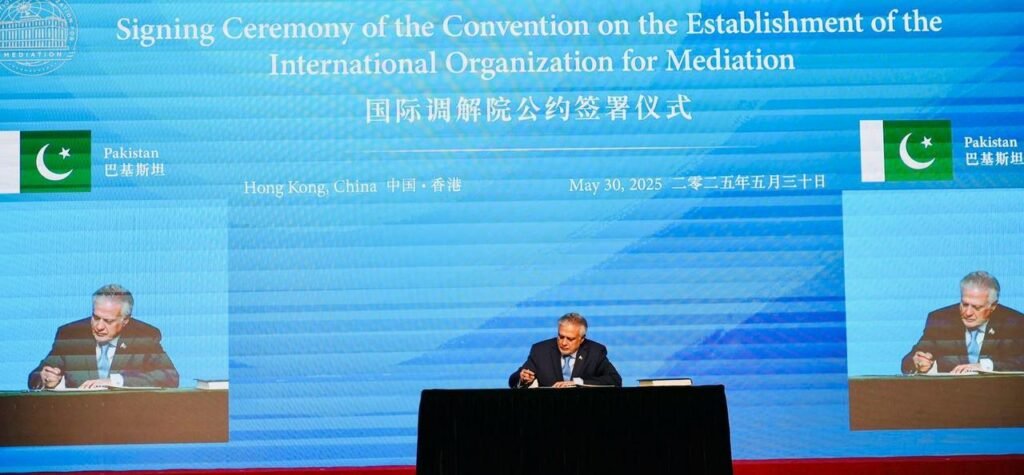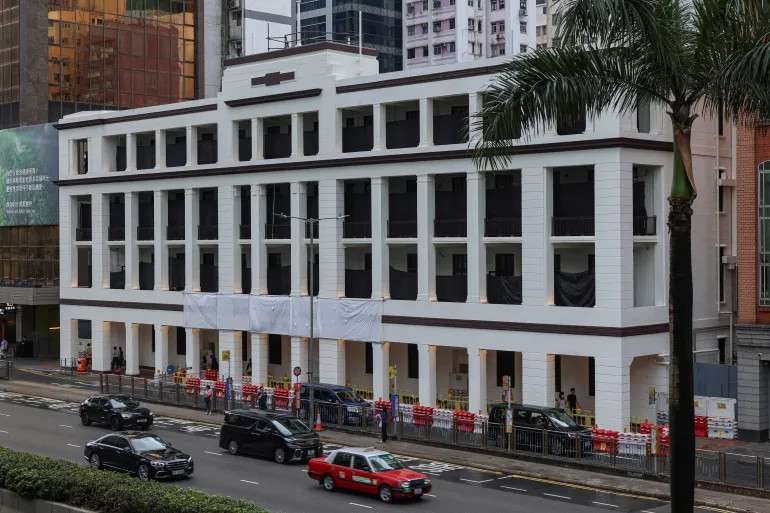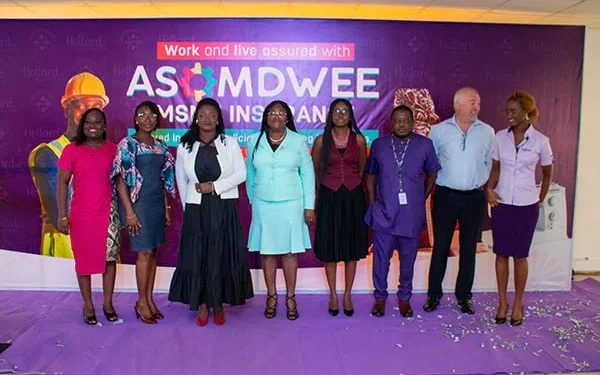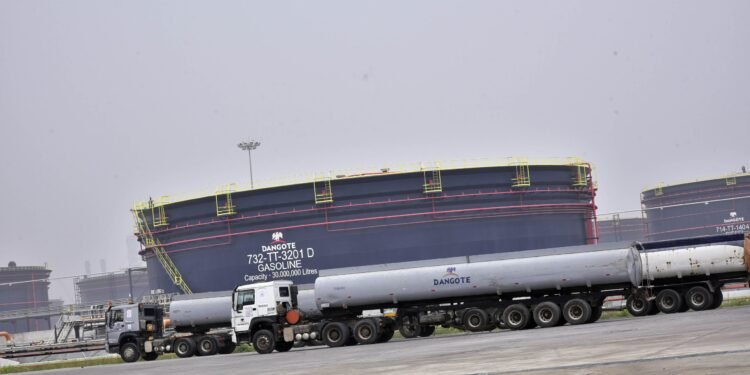The Chinese government has signed a convention establishing the International Organisation for Mediation (IOMed); an international mediation organisation located in Hong Kong.
The Convention on the Establishment of the International Organisation for Mediation (IOMed) was signed into law on Friday, May 30, 2025, in a ceremony presided over by Chinese Minister of Foreign Affairs, Wang Yi in Hong Kong.
The ceremony was attended by representatives from several countries, including Indonesia, Pakistan, Laos, Cambodia and Serbia.
Representatives from 20 international bodies, including the United Nations, also attended the ceremony.

A video shown at the signing ceremony said that the scope of cases handled by the body would include disputes between countries, between a country and nationals of another country, and between private international entities.
Beijing plans for the body to cement Hong Kong’s presence as a top global mediation hub, as it hopes to bolster the city’s waning international credentials.
In an un-bylined opinion piece published in China’s state-run Global Times newspaper, IOMed was described as the “world’s first intergovernmental international legal organisation dedicated to resolving international disputes through mediation.”
It said that the IOMed would fill a “critical gap in mechanisms focused on mediation-based dispute resolution.”

It added that the establishment of the International Organisation for Mediation marks a milestone in global governance and highlights the value of resolving conflicts in an “amicable way.”
The International Court of Justice (ICJ) – the principal judicial organ of the UN, also known as the World Court – is currently the top body for solving legal disputes between member states in accordance with international law.
It also provides advisory opinions on legal questions referred to it by UN bodies.
Beijing is hoping that the International Organisation for Mediation will rival the ICJ as the world’s leading conflict resolution body.
A Great Honour for Hong Kong

Chief Executive of Hong Kong, John Lee Ka-chiu said that the establishment of the International Organization for Mediation (IOMed) in Hong Kong will be a “great honour” for the city and the SAR’s world-class legal infrastructure makes it a “preferred venue” for dispute resolution.
Speaking at the signing ceremony of the Convention on the Establishment of the International Organization for Mediation, Lee underscored the government’s dedication to supporting IOMed’s mission to deliver “friendly, flexible, economical and efficient mediation services.”
“The IOMed will provide a pathway for countries, regardless of culture, language and legal system, to resolve international disputes based on mutual respect and understanding. This is increasingly important amid mounting geopolitical tensions.
“When protectionism threatens to derail the international trade order, and when unilateralism looms over global supply chains, it is dialogue, not division that restores balance.”
John Lee Ka-chiu
Lee noted that Hong Kong is the only common law jurisdiction in China and the only one in the world that operates in both Chinese and English.
He said that the city has a strong tradition of the rule of law, characterised by an independent judiciary and a court of final appeal featuring distinguished jurists with both local and international backgrounds.
“We actively promote a vibrant culture of mediation. In fact, it is a general policy to incorporate a mediation clause in all government contracts. We are also enhancing the system on local accreditation and disciplinary matters of the mediation profession.
“And we go all out to build bridges with the world. Hong Kong will actively promote the IOMed’s valuable work in settling international disputes through mediation, and advocate mediation as a global tool for peace and justice across borders.”
John Lee Ka-chiu
The IOMed headquarters, due to open by the end of this year or in early 2026, will be located at a former police station in Hong Kong’s Wan Chai district.
READ ALSO: Ghana’s Upstream Petroleum Sector Rebounds with New Drilling






















